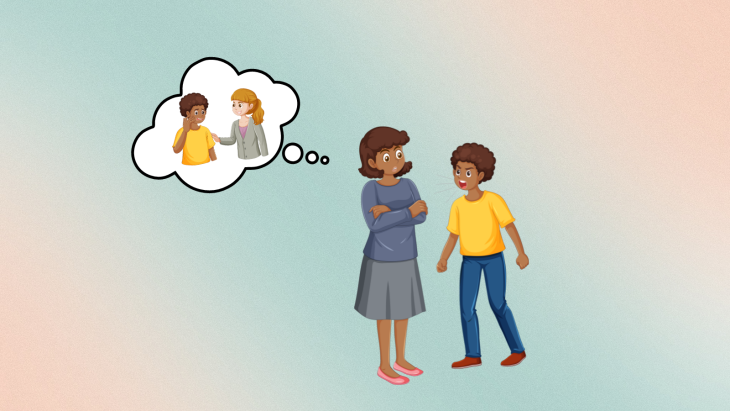Recent Posts
Most Popular
My teen has started talking back to me. How can I use this as an opportunity to help him assert himself and expand his communication skills?

We may not remember exactly the time in our teenage years when we tried asserting ourselves over what authority figures in our lives wanted for us, but we may still remember how it felt when we were able to successfully get our point across, when we were able to get what we really wanted.
Dealing with power imbalance is something teens are still working through. Learning how to make themselves feel seen and heard, how to be empowered and how to share their ideas, and make their own decisions develops their emotional and social skills as they reach adulthood.
Speaking up or back talk?
Parents, naturally, find themselves triggered into anger when teens talk back. Teens who talk back often use sassy or defiant tones, disrespectful and sometimes hurtful language when they express their opinions, question how things are done at home, and complain about their parents’ decisions.
Back talk results in fights, heated arguments, and repeated arguments put a strain on the parent-child relationship.
One challenge on the part of parents is how they view this situation. We can challenge our own beliefs in asking, “What do I expect in my child’s response to my parenting? Do I believe in unquestioned obedience?”
Sometimes, back talk is immediately viewed as negative when parents’ parenting style expects children to take everything they say as a command. But because teenagers’ brains undergo transformation, and they are just learning how to communicate, problem-solve and be empathetic, they need their parents’ guidance and lots of practice to do it.
In order to be more objective in teaching these skills to teens, can parents view back talk as “speaking up to disagree”?
Parents, what is our goal?
- How do we teach teens to respond to challenging moments without causing harm to themselves and to others?
- How do teens learn to respond assertively (not aggressively)?
- How do teens practice their skill in dealing with authority, compliance with rules, and working with others?
With these questions, parents can view back talk as a teenager’s way of expressing their thoughts, emotions, wants, and needs using their limited communication ability or tools. This way, parents are not immediately dismissive about the teen’s efforts to communicate.
Opportunities to teach communication skills
With that said, when you encounter back talk, look beyond the surface and help the child communicate more effectively.
- Start with yourself.
Then learn to identify and validate their feelings. Worlds like, “I can see you are upset/frustrated/angry about this right now” makes them feel understood.
Listen to them by reflecting their thoughts back at them from time to time. Offering to work on finding solutions together empowers them.
- Help them regulate their emotions.
Using respectful language instead of attacking or blaming takes time to build as skills, but they are foundational. This includes making “I” statements to express their feelings.
Teaching these communications skills takes intention and effort on your part, but it is in the safety of your parent-child relationship that your teens can build their social and emotional skills.
Reach top healthcare and mental health professionals and candidates faster when you use a health care job board like this one!








Comments